"democracies make elections, elections don’t make democracies”
 The counting of Millions of votes cast in Iraqis elections is going on to choose the right ones from more than 6,000 candidates from 86 political groups to gain seats in the 325-member assembly. Some violence occurred - 38 citizens were killed and around 100 were wounded in result of bombings. The country's electoral commission called it a "glorious day" and a victory for Iraq. While election hype and afterwards PM selection and government coalitions are taking headlines some other aspects before, during and after elections may have more effect for the future of Iraq.
The counting of Millions of votes cast in Iraqis elections is going on to choose the right ones from more than 6,000 candidates from 86 political groups to gain seats in the 325-member assembly. Some violence occurred - 38 citizens were killed and around 100 were wounded in result of bombings. The country's electoral commission called it a "glorious day" and a victory for Iraq. While election hype and afterwards PM selection and government coalitions are taking headlines some other aspects before, during and after elections may have more effect for the future of Iraq.
Comments from West have praised democratic development and even the UN Security Council Monday hailed parliamentary elections in Iraq as an "important step" toward strengthening the country's national unity. From my point of view democracy played minor role in elections and the outcome probably will be splitting ethnic/religious entities instead of national unity.
![]()
Background information related to Iraqi elections as well later the results can be found from following link , which includes an interactive map with Province Overview/Details, Political Coalitions, Seats Distribution and later with Winning Candidates of Iraqi elections 2010 made by Alsumaria Iraqi Satellite TV network.
The De-Baathification Campaign
The anti-Baathist campaign in Iraq was strong having its influence to selection alternatives. The Accountability and Justice Commission successfully banned hundreds of candidates from the March 2010 elections for alleged Baathist ties. Unlike the barring of candidates, which was of questionable legality, the February 2008 Accountability and Justice Act actually says that Baathists are not allowed jobs in the Interior and Defence Ministries. Many southern provinces that are controlled by Prime Minister Nouri al-Maliki’s State of Law list have also created their own committees to weed out former regime members in the local governments.
Parliamentarian Saleh al-Mutlaq and his Iraqi National Dialogue Front, who were part of former Prime Minister Iyad Allawi’s Iraqi National Movement are the most prominent of those banned. U.N. mission in Iraq sent a letter to the Election Commission calling on it to reject the banning of candidates. Parliamentarian Mutlaq said that he would appeal his case to the courts. United Nations asked Accountability and Justice Commission to reverse its decision. They replied by telling the U.N. to stop interfering in Iraqi affairs.
Vice President Joe Biden criticized Accountability and Justice Commission and said that it wasn’t being impartial and suggested that banning candidates should be postponed until after the election. Head of the Accountability and Justice Commission Ali al-Lami rejected the idea. Government spokesman later said that the U.S. was interfering in Iraq’s internal affairs.
Press reported that of the 511 banned candidates, 72 were from former Prime Minister Iyad Allawi’s Iraqi National Movement, and 67 were from Interior Minister Jawad Bolani’s Unity of Iraq Alliance. Later Accountability and Justice Commission reinstated 59 candidates saying that there were errors in their paperwork. On January American commander of the U.S. Central Command General David Petraeus said that the Accountability and Justice Commission was working at the behest of the Iranian Revolutionary Guards’ Qods Force. Commission responded by accusing Petraeus of working with Baathists.
And where goes the oil money?
The key element to understanding the future development of Iraq is the struggle about oil income, which same time draws lines between central government and regional/local authorities. On December 2007 the Basra branch of the Fadila party reflected local regionalism sentiment and made an unprecedented demand for a one-dollar fee per locally-produced barrel of oil to be set aside for the governorate in a special fund. Basra holds maybe 60 to 70% of Iraq’s oil (currently producing more than 1,000,000 bpd) and despite remarkable oil income has one of the lowest standards of living in the country. Despite a failed referendum initiative in January 2009 the Maliki government indicated its preparedness to give Basra 50 cent per barrel of oil. When news about this broke last May, it was immediately followed by demands from Kirkuk, Iraq’s second biggest producer (maybe 600,000 bpd) for a similar half-dollar per barrel fee. The new article 43 of the budget was accepted and went even further: So one dollar will be paid to the relevant governorates for 1) each barrel of produced oil; 2) each barrel refined oil (the biggest refineries are in Bayji in Salahaddin province and Dura near Baghdad) 3) each 150 cubic metres of produced natural gas. And not only oil, but also, 20 dollars will be paid for each foreign visitor to the “holy sites” in the governorates!
authorities. On December 2007 the Basra branch of the Fadila party reflected local regionalism sentiment and made an unprecedented demand for a one-dollar fee per locally-produced barrel of oil to be set aside for the governorate in a special fund. Basra holds maybe 60 to 70% of Iraq’s oil (currently producing more than 1,000,000 bpd) and despite remarkable oil income has one of the lowest standards of living in the country. Despite a failed referendum initiative in January 2009 the Maliki government indicated its preparedness to give Basra 50 cent per barrel of oil. When news about this broke last May, it was immediately followed by demands from Kirkuk, Iraq’s second biggest producer (maybe 600,000 bpd) for a similar half-dollar per barrel fee. The new article 43 of the budget was accepted and went even further: So one dollar will be paid to the relevant governorates for 1) each barrel of produced oil; 2) each barrel refined oil (the biggest refineries are in Bayji in Salahaddin province and Dura near Baghdad) 3) each 150 cubic metres of produced natural gas. And not only oil, but also, 20 dollars will be paid for each foreign visitor to the “holy sites” in the governorates!
Related to oil income struggle between Kurds and central government one interesting detail is that in budget some money has been set aside for the interesting separate heading of “oil exports via Turkey”. These funds are intended to enable the Kurds to at least cover the operating costs of the foreign oil companies (DNO and Genel) that briefly began exporting from Kurdistan last year but received no payment since Baghdad does not recognise their contracts, thereby forcing the the Kurdistan Regional Government (KRG) to make any payments from its own purse.
The new election law could lead to troubling divisions over oil revenues. The law has created conditions for even greater Kurdish control over Kirkuk and oil resources in northern Iraq. Other oil-rich regions of Iraq, such as the largely Shia south, will also have a basis to agitate for oil revenues to flow to regional governments. With the Iraqi central government still relying on oil for more than 90 percent of its national budget, the long-term viability of the country is called into question even if elections signal short-term success.
Occupied oil field
One small episode related interests in Iraq politics and oil took place on December 2009, while Iranian soldiers occupied an oilfield called al-Fakka on the Iraqi side of the border with Iran in the Maysan governorate. Episodes like the Fakka incident ultimately serve as political theatre that will deflect attention from the more fundamental question about Iranian influence – at the level of high politics in Iraq, and through a constitution that works in Tehran’s best interest. One can only speculate about the possible explanations for the Fakka occupation itself, which may range from everything like local issues in the Maysan area via internal disagreements on the Iranian side of the border to the possibility that Tehran would like to test Maliki.
 A similar lack of concern was expressed at the Nahrainnet website, which is frequently mislabelled a “Sadrist” website but in reality seems more like an Iranian-inspired pan-Shiite website that seeks to bring ISCI and Sadrists together over issues like support for the Huthis in Yemen. More in an article of Gulfanalysis.
A similar lack of concern was expressed at the Nahrainnet website, which is frequently mislabelled a “Sadrist” website but in reality seems more like an Iranian-inspired pan-Shiite website that seeks to bring ISCI and Sadrists together over issues like support for the Huthis in Yemen. More in an article of Gulfanalysis.
Oilfields for sale
 International oil industry is making its share with partitioning Iraq. The second licensing round for Iraqi oilfields was carried out recently by the oil ministry in Baghdad. On the one hand, the contracts won by foreign companies will prove controversial because Iraq remains in the middle of a chaotic process of political transition and has yet to agree on a legal framework for the oil sector. On the whole, the mostly unsuccessful first and partially successful second licensing round have ended up producing an outcome that seems more sustainable than if all the contracts on offer had been immediately awarded to foreign companies as planned. If that had happened, the whole package would have been attacked both for selling Iraqi oil on the cheap and for marginalising the domestic oil industry.
International oil industry is making its share with partitioning Iraq. The second licensing round for Iraqi oilfields was carried out recently by the oil ministry in Baghdad. On the one hand, the contracts won by foreign companies will prove controversial because Iraq remains in the middle of a chaotic process of political transition and has yet to agree on a legal framework for the oil sector. On the whole, the mostly unsuccessful first and partially successful second licensing round have ended up producing an outcome that seems more sustainable than if all the contracts on offer had been immediately awarded to foreign companies as planned. If that had happened, the whole package would have been attacked both for selling Iraqi oil on the cheap and for marginalising the domestic oil industry.
In the event, a more balanced picture emerged, even if some of the failed offerings from round one (including Zubayr and West Qurna Phase 1) have since been awarded to foreign companies in separate deals (led by Italian and US firms respectively). In addition to Rumayla which was awarded to a Sino-British consortium in the first round in June, the successful bids in the second round include most notably the supergiant project West Qurna Phase 2 (in Basra; awarded to a consortium led by Russia’s Lukoil and also including Norway’s Statoil in a smaller role) and Majnun (Basra; Shell), plus Halfaya (Maysan; CNPC), Gharraf (Dhi Qar; Petronas), Badra (Kut; Gazprom) and Qayara and Najma (near Mosul, both to Sonangol of Angola). The new agreements also include partnership stakes for Iraqi state oil companies, and the “leftover” fields that were not awarded will be developed by the Iraqis themselves as well (Middle Euphrates, East Baghdad, and a group of fields near Kirkuk).
 The first licensing round for Iraqi oil produced surprises and what many analysts describe as a “meagre” outcome: Only one out of eight oil and gas fields was awarded, the supergiant Rumaila field in the Basra area where a service contract was won by a consortium of BP and the Chinese CNPC.The two last weeks have seen considerable confusion about the Iraqi oil ministry’s position concerning oil exports from Kurdistan, where the regional authorities have signed a number of exploration and drilling deals with foreign oil companies without consulting Baghdad.
The first licensing round for Iraqi oil produced surprises and what many analysts describe as a “meagre” outcome: Only one out of eight oil and gas fields was awarded, the supergiant Rumaila field in the Basra area where a service contract was won by a consortium of BP and the Chinese CNPC.The two last weeks have seen considerable confusion about the Iraqi oil ministry’s position concerning oil exports from Kurdistan, where the regional authorities have signed a number of exploration and drilling deals with foreign oil companies without consulting Baghdad.
Ongoing energy struggle across Eurasia via an embattled energy corridor (and a key pipeline) that runs from the Caspian Sea to Europe through Georgia and Turkey -- and the Great Game of business, diplomacy, and proxy war between Russia and the U.S. that has gone with it. On the other hand, the Turkish leadership draws ever closer to Iran, which provides 38% of Turkey's oil and 25% of its natural gas. Ankara and Tehran also have geopolitical affinities (especially in fighting Kurdish separatism). Together, they offer the best alternative to the Caucasus (Azerbaijan, Georgia) in terms of supplying Europe with Iranian natural gas. Iraq has also discussed northern export routes through Turkey, including linking up to the Azeri-Turkish Baku-Tbilisi-Erzerum (BTE) line, the planned Nabucco (Iran-Europe) pipeline, and the ongoing Arab Gas Pipeline (AGP) project. The proposed AGP pipeline would deliver gas from Iraq’s Akkas field to Syria and then on to Lebanon and the Turkish border sometime in 2010, and then on to Europe.
Votes for sale
 For many voters it seems to be too insecure to wait that their selections on election days would bring some change for their living conditions. According Uruknet some of the nation’s poor, the right to vote does not mean having a say in who leads the country; it means having something to sell to make desperately needed cash. With intensive campaigning now under way in what is shaping up to be a highly competitive ballot, votes have become a precious commodity, a fact not lost on many ordinary people who care little for politics but who struggle to make ends meet.
For many voters it seems to be too insecure to wait that their selections on election days would bring some change for their living conditions. According Uruknet some of the nation’s poor, the right to vote does not mean having a say in who leads the country; it means having something to sell to make desperately needed cash. With intensive campaigning now under way in what is shaping up to be a highly competitive ballot, votes have become a precious commodity, a fact not lost on many ordinary people who care little for politics but who struggle to make ends meet.
"Elections are a beautiful opportunity to get some money," Ahmad Salam said. "There are lots of people willing to sell their votes, and lots of people who want to buy them." A mechanic by trade working in the impoverished Sadr City slum of north-eastern Baghdad, Mr Salam has taken on the role of an election agent with a difference. He collects votes and then offers them en masse to whichever party is prepared to make the highest bid, taking a commission for his efforts. "I have 100 people who have given me their vote to sell," he said outside the small garage where he is employed as a casual worker, earning a few dollars a day. "None of them cares who wins, none of them thinks it makes any difference, so they give me their vote, and I sell it." According to Mr Salam, some of the poorest voters were prepared to take as little as US$5 (Dh18) to guarantee their allegiance in the election booth. Most charge more, between $20 and $100, depending on the number of voting-age adults in their family.
One other example is Zuhair Aqeel, also an election agent, who collects votes and sells to the highest bidder. "I have done this work in every election since the first in 2005. From the last elections I earned enough to buy a small taxi which has given me a good living. "This year I hope to do even better and I think I will be able to get one of the candidates to promise me a job in a government office or as an administrator in the police or army. If I get that, I will be comfortable; I’ll have a stable salary and a stable life."
Federation option?
The basic question, related also to sharing of oil incomes, is if Iraq is heading now more towards a confederation or a federation. The Kurds want the former, with the only role of the central government to send them some regular development money. The Kurdish autonomy is well accepted by other Iraqis but think that at least in the oil sector there should be a role for the central government. The presidency council allows the Kurds to go on with their contradictory position of demanding confederation (and threatening with secession) even though they know that even the most optimistic geological estimates will leave them as the junior partner in terms of oil reserves.
the central government to send them some regular development money. The Kurdish autonomy is well accepted by other Iraqis but think that at least in the oil sector there should be a role for the central government. The presidency council allows the Kurds to go on with their contradictory position of demanding confederation (and threatening with secession) even though they know that even the most optimistic geological estimates will leave them as the junior partner in terms of oil reserves.
The hot spot for development Kurdish autonomy is Kirkuk, which has been subjected to two successive policies of ethnic modifications during the past four decades: a planned and systematic arabization policy and ethnic modification in favour of the Arabs by the previous regime between 1968 and 2003; then a planned kurdification and ethnic modification in favour of the Kurds. For Iraqi Turkmens to be recognized as the third main ethnic community in Iraq, with rights and duties equal to those of the Arabs and Kurds in Iraq, namely: the recognition of the Turkmen language (Turkish) as the third official language of the country; the effective participation of the Turkmen community at all levels of power in Iraq, by the inclusion of their political representatives in the supreme institutions which govern the country, such as the Presidential Council, Government Council, Parliamentary Presidency, Supreme Council of Justice, Chief of Staff of the Army, of the Police and of the Security. Turkmens have been excluded from these institutions since the invasion of Iraq, as the political power, under the anglo-american occupation, from 9th April 2003, has been attributed on an ethnic-sectarian basis and exclusively to the parties who collaborated with the Occupiers (Kurds, Shiites and Sunnis). More e.g. Uruknet.
 The incorporation of Kirkuk into the Kurdistan Regional Government (KRG) is seen as likely. Arabs, Turcomen, and other ethnic groups that left Kirkuk following the 2006 sectarian violence will no longer be eligible voters in Kirkuk. In 1957, Kurds made up about 48 percent of Kirkuk's population; they are now almost certainly well over 50 percent. Shia members from the southern provinces also have an incentive to support a future Kirkuk petition, as this would help secure Kurdish support for a southern Shia region where substantial oil revenues would go directly to the regional government.
The incorporation of Kirkuk into the Kurdistan Regional Government (KRG) is seen as likely. Arabs, Turcomen, and other ethnic groups that left Kirkuk following the 2006 sectarian violence will no longer be eligible voters in Kirkuk. In 1957, Kurds made up about 48 percent of Kirkuk's population; they are now almost certainly well over 50 percent. Shia members from the southern provinces also have an incentive to support a future Kirkuk petition, as this would help secure Kurdish support for a southern Shia region where substantial oil revenues would go directly to the regional government.
Same time with election mess the Slaughter of Iraqi Christians has started. Christian families are leaving the northern Iraqi city of Mosul in their droves to escape a concerted campaign of violence and intimidation. Chaldean Bishop Emil Shimoun Nona has said that Mosul is experiencing a "humanitarian emergency" and that "hundreds of Christian families" left the city Feb. 24 in search of shelter, leaving behind their homes, property, commercial activities, according to Asia News. The situation "is dramatic", he said, and warned that Mosul could be "emptied completely of Christians". lack of security is due to a political vacuum in Mosul, with Arabs running the city and not sharing power with the Kurds. He said he remains hopeful that peace could return after the elections.
My guess is that ethnic/religious groups will strengthen their positions as result of elections, the self-governance/autonomy of provinces will increase at cost of central government and if the country can avoid total splitting the future of Iraq will be that of federation/confederation.
My Conclusions
From my point of view there is some base for following conclusions related to Iraqi elections 2010 and events around them:
- Elections showed some tendency towards democracy in Iraq especially if compared to some traditional allies of western powers in Arabic world
- After successful licensing round for Iraqi oilfields with multiple winners there is good change to develop Iraqi energy field, sustainable economy and get wealth for further development
- The role of occupying forces is declining and Iraqi people (or at least leading tribes) are taking development work more to their own hands; as consequence the stability of Iraq probably will increase
- Coming deals regarding government, sharing revenues and administration will reflect the fragmentation of politics along sectarian and ethnic fault lines.
- Iranian influence, its amount still unclear, will reflect how internal issues are intertwined with regional ones.
- The final results will indicate whether Iraq has moved away from the sectarian climate of 2005 or will it continue with a slightly more national-sounding rhetoric.
- The challenge for nation building is that Kurds, Shiites and Sunnis probably have their religious or ethnic identity, however it is questionable if they share an Iraq identity. This may result Iraq splitting into three entities/states a bit similar way like Bosnia after Dayton. The outcome may well be a confederation/federation of these strong entities.

More my views one may find from my BalkanBlog and more updated information from other sources from newsportal Ari Rusila's Conflicts

 Two years has gone since Kosovo Albanians declared their independence from Serbia. However calling to Kosovo needs country code 381 – which is Serbia – or by GSM 377 44 (via Monaco Telecom) or others via Serbian operators. This because as at this time, Abkhazia, Kosovo, Transnistria, Somaliland, South Ossetia and others are not in the ISO 3166-1 standard due the absence of recognition by the United Nations. Situation is one minor example about Kosovo “statehood”. Besides formalities – like that the province is administrated as international protectorate by foreign powers – the on the ground status is more complicated and even going more far away from drawing board ideals of Washington and Brussels.
Two years has gone since Kosovo Albanians declared their independence from Serbia. However calling to Kosovo needs country code 381 – which is Serbia – or by GSM 377 44 (via Monaco Telecom) or others via Serbian operators. This because as at this time, Abkhazia, Kosovo, Transnistria, Somaliland, South Ossetia and others are not in the ISO 3166-1 standard due the absence of recognition by the United Nations. Situation is one minor example about Kosovo “statehood”. Besides formalities – like that the province is administrated as international protectorate by foreign powers – the on the ground status is more complicated and even going more far away from drawing board ideals of Washington and Brussels.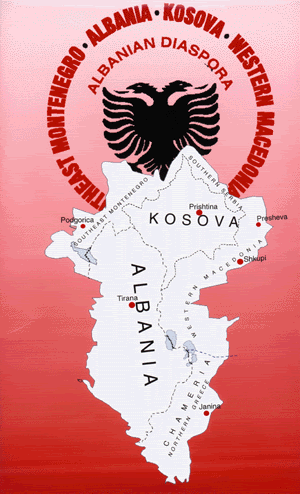 Those who supported Kosovo independence said that Kosovo
Those who supported Kosovo independence said that Kosovo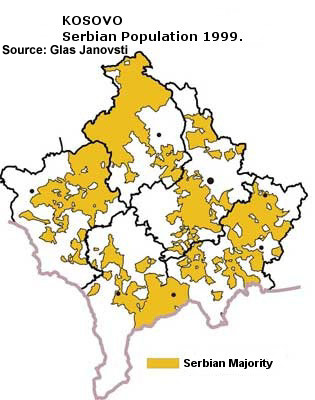
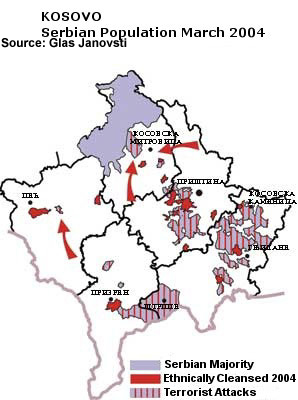
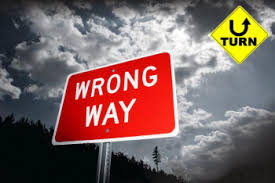 predominantly on political and security issues, and since 2008 in particular the rule of law. The long-term challenges are however related in general first to conflict between international law and present status and second to poor state of Kosovo's economy. Today's EU rule & law mission – Eulex – does not address either of these challenges.
predominantly on political and security issues, and since 2008 in particular the rule of law. The long-term challenges are however related in general first to conflict between international law and present status and second to poor state of Kosovo's economy. Today's EU rule & law mission – Eulex – does not address either of these challenges. 
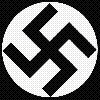 April 14th), radio-tv station (Belgrade, 16 civilians dead), a passenger train (Grdelica bridge, 14 dead), also a number of infrastructure, commercial buildings, schools, health institutions, cultural monuments were damaged or destroyed. Some 2.500 people (mostly civilians) were dead, material civil infrastructure damage is estimated to be some 30 billion dollars. (More e.g. in “
April 14th), radio-tv station (Belgrade, 16 civilians dead), a passenger train (Grdelica bridge, 14 dead), also a number of infrastructure, commercial buildings, schools, health institutions, cultural monuments were damaged or destroyed. Some 2.500 people (mostly civilians) were dead, material civil infrastructure damage is estimated to be some 30 billion dollars. (More e.g. in “






